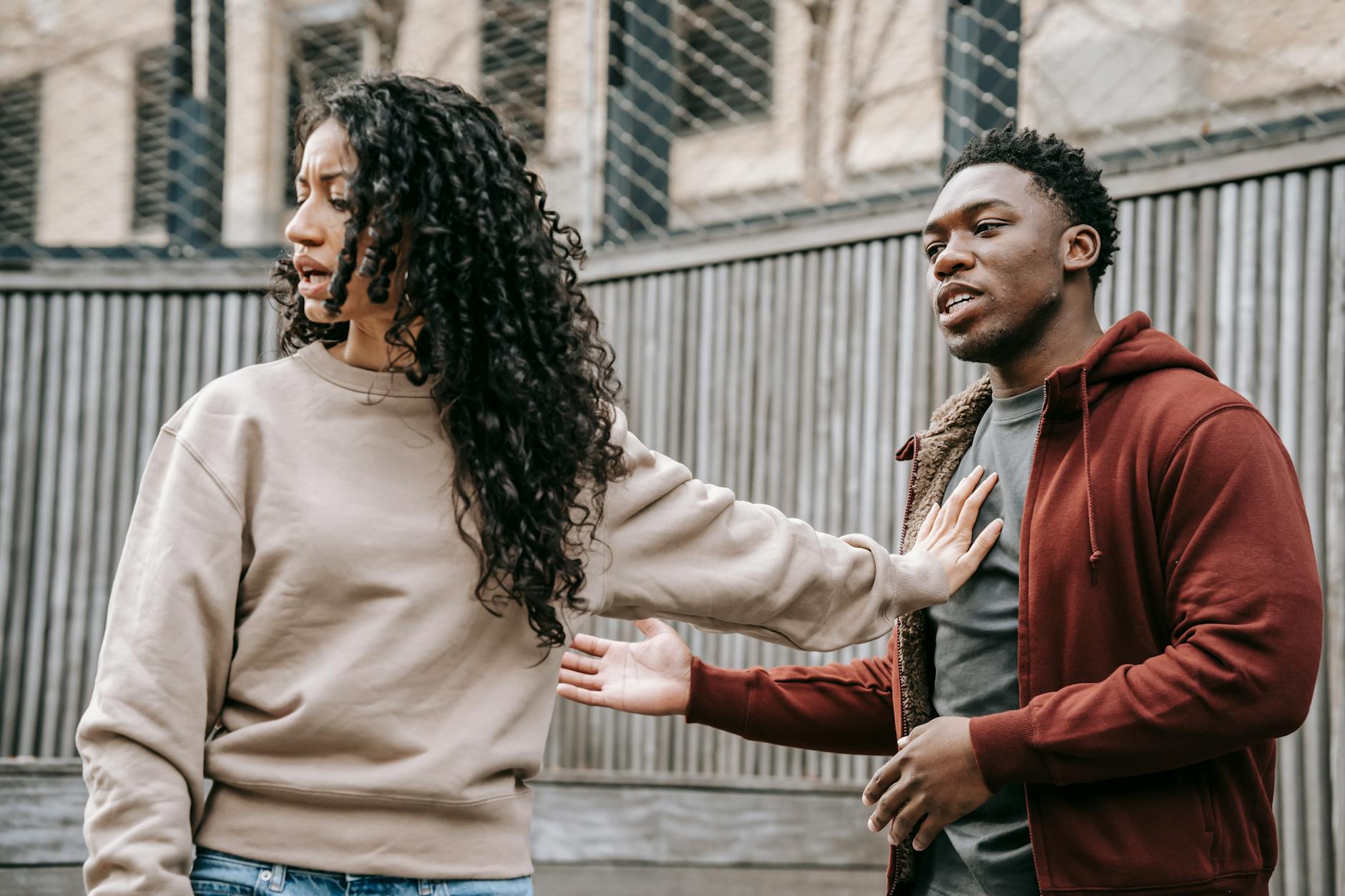In today’s busy world, people often try to do many things at once, and it’s rare to really listen to others. Whether you’re talking to friends, working with co-workers, or spending time with family, listening closely can help you connect better and understand them more. This blog will share 10 easy tips to help you improve your listening skills. By using these tips, you’ll not only become a better listener, but you’ll also build stronger connections with the people around you.
1. Stay Fully Present In The Moment
You can start being a better listener right away by just paying attention. Create a “Listening Ritual” to help you focus fully on what’s being said. Before you start a conversation, take a deep breath, clear your mind, and commit to staying present. This simple exercise signals to your brain that it’s time to switch into listening mode, boosting your focus. If concentrating is hard for you, check out this article on improving focus for more tips.
Studies show that 65% of people are visual learners, meaning they learn best by seeing information. Try picturing the conversation like a story, with each person’s words as part of that story. This helps you stay engaged and remember what’s being said, making you more attentive. Plus, it makes it easier to recall details later when you need them.

Silence can feel uncomfortable, but to be a good listener, you have to get comfortable with pauses. Pauses give us time to process what we’re hearing, connect it with our own experiences, and prepare for what comes next. Don’t rush to fill every pause; instead, use these moments to reflect and understand. This creates a natural flow that makes the speaker feel truly heard.
2. Show Genuine Interest In The Conversation
“Mirror and Match” the speaker’s tone or pace to build a connection. This means matching the way the speaker talks to make them feel more comfortable. By matching their tone or speed, you remove the invisible barrier between you and them, and this shows you understand their values, goals, and experiences, making them feel respected. For example, if they’re speaking calmly, slow down your own tone to match theirs. This creates a sense of mutual respect and enhances communication, making you a better listener.
Ask Open-Ended questions to fill any gaps in information. Dive deeper into a conversation by asking questions like, “What’s been the most important part of this experience for you?” or “How did that situation change the way you think?” Questions like these help you go beyond small talk and create a richer conversation. Sometimes, you can even learn new information that is generally lost in questions with simple yes/no answers.

Be genuinely curious about the topic of the conversation. Showing curiosity signals empathy and can make the conversation more meaningful. When you show interest, it helps you connect better with the speaker and allows for deeper, more diverse talks. Treat each conversation as a chance to learn something new, which shows that you value and respect what the other person has to say.
3. Listen Without Planning Your Response
Try not to rush to fill pauses during a conversation. Instead of quickly jumping in with your opinions or advice, practice giving the speaker space to share their thoughts. This exercise helps you shift from thinking about what to say next to simply listening to their words. Many people listen to reply, not to understand, which is a big reason why they’re not good listeners.

Focus on the speaker’s needs, not your own goals, to make communication flow more smoothly. Let go of any personal agenda during the conversation, and give the other person room to express themselves freely. For example, if they’re venting, don’t focus on solving the problem. Instead, just listen and figure out what they really need—whether it’s support, affirmation, or just understanding. This will help them feel valued and respected, and they’ll be more open to listening when it’s your turn to talk.
It’s normal to have your own thoughts when someone is talking to you. But when these thoughts pop up, practice letting them go instead of getting caught up in them. Being mindful during conversations means you notice your thoughts without acting on them, bringing your focus back to the speaker. Constantly redirecting your attention can be tiring and even lead to brain fatigue, so try to be patient with yourself as you practice being a better listener.
4. Practice Empathy To Connect Deeper
Ask questions based on empathy to learn more about how someone feels. For example, you can ask, “How did that make you feel?” or “What’s been the hardest part?” These questions focus on the person’s emotions, not just the facts, which helps create a sense of respect and understanding between you and the speaker.

Just like “giving space,” use “Empathy Bridges” to show you understand their feelings. Instead of only agreeing with what they’re saying, show that you recognize their emotions too. You can say things like, “It sounds like you felt really frustrated,” or “I can tell that was overwhelming.” This shows you’re listening closely and care about their feelings.
The best way to connect with someone emotionally is to remember a similar feeling without immediately sharing it. Think of a time when you felt the same way, but keep it to yourself for now. This lets you understand them better without interrupting their story, and they’ll feel your empathy and support even more.
5. Be Patient And Embrace Silence
Give the speaker time to think and process, especially when they’re talking about something emotional or complicated. Staying silent during these moments shows that you’re patient and truly listening without rushing them. A good/better listener helps people feel comfortable going at their own pace, knowing they have your full attention.

It’s easy to fill pauses with phrases like “uh-huh” or “right” to show you’re listening. But sometimes, just holding a friendly expression, nodding, and staying quiet can be even more powerful. This “active silence” allows the speaker to think and reflect without feeling pressured, creating a calm space where they feel understood.
Wait for three seconds after someone finishes talking, because it prevents you from interrupting the speaker. This small pause gives them a chance to add any final thoughts they might have, and give you something more to talk about. It also shows respect for their words and lets them know you’re really listening.
6. Ask Questions When Needed
When listening, try to understand both the facts and the feelings behind what the speaker is saying. This means asking questions that make details as well as their emotions clear. For example, you might ask, “Could you help me understand more about what felt overwhelming in that situation?” This way, you’re showing that you’re interested in what happened and how they felt about it.

If the speaker seems hesitant or only shares a small part of their story, you can say, “Tell me more about that.” This open-ended prompt encourages them to go deeper without feeling pressured. It lets the speaker know you’re genuinely interested in hearing more, which can help them feel more comfortable opening up.
Instead of assuming you understand everything they mean, ask for clarification when needed. For example, you might say, “When you said that, did you mean…” This helps clear up any confusion and shows that you’re paying close attention to their words. This small step can help prevent misunderstandings and make you a better listener.
7. Avoid Making It About Yourself
Even if their experience reminds you of something you’ve been through, try to keep the focus on their unique perspective. Instead of thinking, “How does this relate to me?” ask yourself, “What can I learn from their experience?” This approach will help you stay focused on understanding them fully rather than comparing it to your own life. When you do this, you show the speaker that you respect their story and are willing to make them to feel heard.

It’s easy to want to offer solutions, but avoid giving advice unless someone specifically ask for it. When you jump into problem-solving mode too soon, it can make the speaker feel like their feelings aren’t important. It can also make them feel like they’re being judged, and can prevent them from opening up to you. Instead, listen without interrupting to show them that you trust their ability to find answers and that you value their perspective.
Keep the conversation centered on them by asking follow-up questions that bring out more of their experience. For example, ask “How has that impacted you?” or “What did you learn from it?” These questions show that you’re interested in their personal journey and keep the spotlight on what they’re going through, which will help them feel understood and make you a better listener.
8. Reflect On The Key Points
When someone shares their feelings or struggles, it’s important to show that you understand what they’ve been through. By paraphrasing their experience in a caring way, like saying, “It sounds like you’ve been through a lot, and it’s taken a toll on you,” you let them know you’re truly listening. This type of response not only shows empathy, but also make them feel supported and validated. It also helps them feel less alone in their experience and allow you to be a better listener.

If you notice that someone keeps bringing up the same issue or feeling, it’s helpful to point it out. Saying something like, “It sounds like this issue has been weighing on you for a while” shows that you’re paying attention and that you understand the bigger picture. Recognizing these patterns not only helps the person feel understood but also opens the door for deeper conversations about what’s really bothering them.
When someone opens up to you, it’s important to show that you appreciate their trust. Ending the conversation by saying something like, “Thanks for being so open” or “I really appreciate you sharing this” can make them feel valued. It reinforces a sense of safety and trust, which can encourage them to share more in the future. Expressing gratitude is a simple yet powerful way to strengthen your connection, and invite people to be more open and honest with you.
9. Control Your Non-Verbal Communication
To show that you’re focused on the person speaking, try not to cross your arms or look away too often. Crossing your arms can make you seem closed off or uninterested. Instead, relax your shoulders, face the person directly, and keep an open posture. This helps the other person feel that you are truly listening and engaged in the conversation.

Sometimes, small movements can distract the speaker and make them feel like you’re not really paying attention. It’s important to avoid habits like checking your phone, looking at your watch, or fidgeting. These actions can make someone feel rushed or unimportant. By staying still and focused, you create a space where the other person feels like they have your full attention. This simple action can encourage them to share more openly with you and make you a better listener.
Your facial expressions and eye contact are powerful ways to show empathy and understanding. Look directly at the person and smile warmly when it feels right. Mirroring their emotions can also help build a connection. For example, if they are sharing something difficult or sad, showing a concerned or thoughtful expression can signal that you truly understand and care about what they’re going through. These nonverbal cues help create a deeper sense of trust and understanding between you and the speaker.
10. Commit To Improving Daily
One awesome way to become a better listener is to keep a “listening journal.” At the end of each day, take a few minutes to think about your conversations for the entire day. Write down what went well and what you could have done better. This will help you stay mindful about how you listen and let you notice any patterns in your behavior. Over time, you’ll see how much you’re improving, and it can guide you on what to focus on next.

Another helpful approach is to set small listening goals for yourself. You can create challenges like, “Today, I won’t interrupt anyone,” or “I’ll ask three clarifying questions in every conversation.” These little challenges give you something specific to focus on and make listening feel more rewarding. As you complete these challenges, you’ll find that these small efforts add up and help you become a more skilled and engaged listener.
When you notice that you’ve successfully used a new listening technique, take a moment to celebrate! Acknowledging your progress, even in small ways, helps keep you motivated and reminds you why listening is important. Whether it leads to deeper conversations or stronger relationships, recognizing these wins shows you how valuable good listening can be.
Final Thoughts
Improving your listening skills is more than a set of techniques; it’s about developing empathy, patience, and respect in every conversation. The skills you build can lead to deeper connections, reduce gaps in communication, and bring a new level of understanding to relationships. Listening well is an art that doesn’t just make others feel heard—it also enriches your life by opening you to new perspectives and insights. Start today with these techniques, and remember: the journey to becoming a better listener is as valuable as the skill itself.
What’s your advice for someone who wants to be a better listener?

3 thoughts on “10 Simple Tips To Become a Better Listener Today”